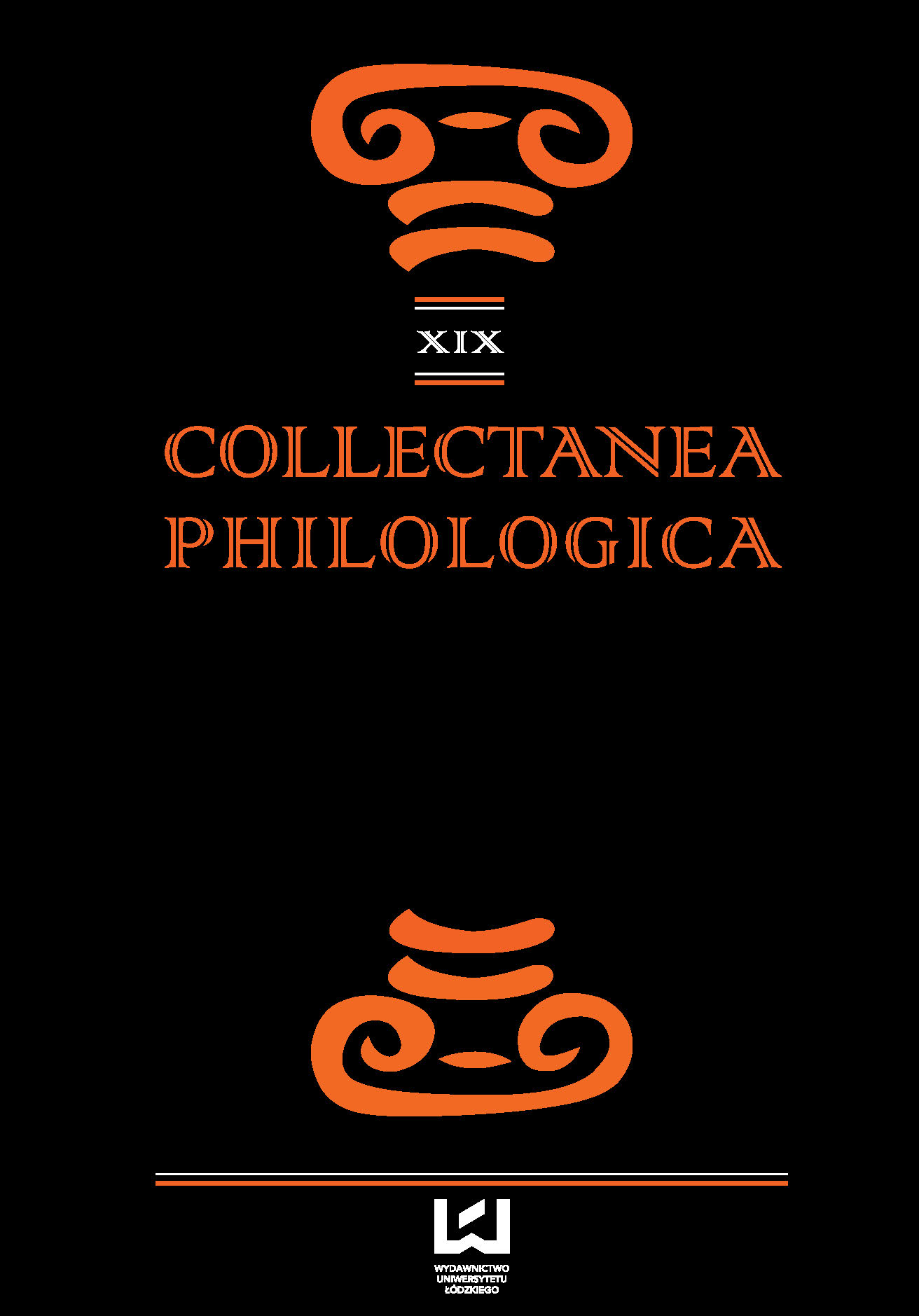Roman law in Tv series ‘Rome’
DOI:
https://doi.org/10.18778/1733-0319.19.11Słowa kluczowe:
römisches Recht, Befreiung der Sklaven, Strafprozess, Militärrecht, JuristenAbstrakt
‘Is there some other form of law?’ – that is how Gaius Iulius Caesar (played by Ciaran Hinds) in the TV series ‘Rome’ comments on Roman Law. ‘Rome’ (2005–2007) is a historical drama set in the last days of the Roman Republic. It is one of the most interesting shows helping to visualize Rome. One of the elements portrayed in the series is Roman Law. Although there is a criminal trial presented in one of the episodes the audience is rarely acquainted with law and its rules directly, Roman legal system can be discovered mostly through characters’ actions. There are many legal elements e.g.: penal trial, executing penalty (damnatio ad gladium ludi), manumission (manumissio), funeral arrangements, or corporal punishment of the soldiers (castigatio). Some of the legal aspects are presented correctly others contain some discrepancies; nevertheless there is a quite interesting portrayal of Roman Law in the series. The aim of the article is to find and describe some legal issues presented in ‘Rome’. It can be both scientific and educational. Nowadays the lecturers search for innovative or more engaging ways to teach, I believe the series could be a useful tool for students of law.
Bibliografia
Amielańczyk, K. (2011). Lex Cornelia de sicariis et veneficis. Ustawa Korneliusza Sulli przeciwko nożownikom i trucicielom (81 r.p.n.e.). Lublin: Wydawnictwo UMCS.
Google Scholar
Berger, A. (1953). Encyclopedic Dictionary of Roman Law. Philadelphia: American Philosophical Society.
Google Scholar
Buckland, W.W. (1908). Roman Law of Slavery. Cambridge: University Press.
Google Scholar
Dajczak, W. Giaro, T., Longchamps de Berier F. (2014). Prawo rzymskie. U podstaw prawa prywatnego. Warszawa Wydawnictwo Naukowe PWN.
Google Scholar
Kolańczyk, K. (1997). Prawo rzymskie. Warszawa Wydawnictwo Naukowe PWN.
Google Scholar
Kołodko, P. (2007). ‘Chłosta jako kara w rzymskim wojskowym prawie karnym.’. Studia Prawnoustrojowe, v. 7, 61–76.
Google Scholar
Kubiak, P. (2010). ‘Skazanie na śmierć na arenie – wymiar sprawiedliwości czy operacja finansowa?’. Studia Prawnoustrojowe 12/2010, 95–107.
Google Scholar
Kumaniecki, K. (1989). Cyceron i jego współcześni. Warszawa Wydawnictwo Naukowe PWN.
Google Scholar
Litewski, W. (2000). Jurysprudencja rzymska. Kraków: Wydawnictwo Uniwersytetu Jagiellońskiego.
Google Scholar
Litewski, W. (2003). Rzymski proces karny. Kraków: Wydawnictwo Uniwersytetu Jagiellońskiego.
Google Scholar
Litewski, W. (1995). Rzymskie prawo prywatne. Warszawa Wydawnictwo Prawnicze PWN.
Google Scholar
Mousourakis, G. (2003). The Historical and Institutional Context of Roman Law. Hampshire, England: Ashgate.
Google Scholar
Suder, W. (2003). Census populi. Demografia starożytnego Rzymu. Wrocław: Wydawnictwo Uniwersytetu Wrocławskiego.
Google Scholar
Tarwacka, A. (2012). Prawne aspekty urzędu cenzora w starożytnym Rzymie. Warszawa: Wydawnictwo UKSW.
Google Scholar
Wołodkiewicz, W., Zabłocka, M. (1996). Prawo rzymskie. Instytucje. Warszawa: C.H.Beck.
Google Scholar
Zaborowska, A. (2010). ‘Powstanie peculium (permissus domini, constituere peculium, concessio peculii) w rzymskim prawie klasycznym’. Studia luridica Toruniensia, v. VII, 148–161.
Google Scholar
Zaborowska, A. (2005). Skutki prawne zarządu peculium przez servus peculiaris. In Toruńskie Studia Polsko-Włoskie IV, Studi Polacco-Italiani di Toruń IV, Witkowski Z., Bronowski C. (eds.), Toruń: Wydawnictwo Uniwersytetu Mikołaja Kopernika w Toruniu, 45–58.
Google Scholar
Żeber, I. (1981). A study of the peculium of a slave in pre-classical and classical Roman Law. Wrocław: Wydawnictwo Uniwersytetu Wroclawskiego.
Google Scholar












